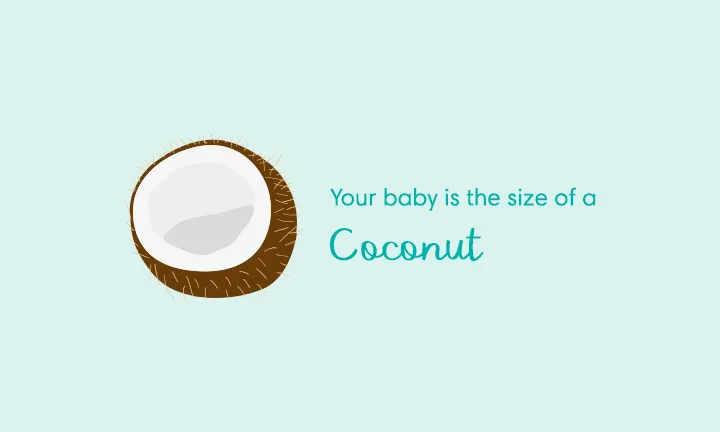31 weeks pregnant
31 Weeks Pregnant: Your Baby’s Development
Baby has been in a curled up position for a few weeks now. He or she will put on another 900 g (2 lb) this month and will be ready for a face-to-face meeting in just nine weeks.
Counting to 10. At roughly the same time each day (if possible, the time when your baby is most active), lie down and keep track of how long it takes to feel baby move. Ideally, this time should be less than an hour, but many women find it takes only a few minutes, depending on the time of day. If an hour passes without any movement, eat a light snack, lie back down and try again. If you still don't feel anything, call your healthcare provider.
Go slow. If your baby is less active at this stage, it’s just because movements are less erratic and more organised. Also, there's not as much room in your uterus as there was a few weeks ago.

31 Weeks Pregnant: Your Symptoms
Losing your breath? That’s thanks to your ever-expanding uterus pushing your diaphragm into your lungs. If you're carrying low, consider yourself lucky–women carrying high have a much tougher time of it. If you find yourself huffing and puffing, slow down and take a few deep breaths. Toward the end of your pregnancy (around week 37 or 38), you may get a break as your baby drops down into your pelvis, easing up on your diaphragm and lungs.
Choosing childcare. Whether you're considering a nanny, day care or a relative, start researching and interviewing prospective choices now. Even if you're not going to need full-time care, you'll probably want to gather a few babysitter recommendations for special occasions.
Premature labour or Braxton Hicks? You've probably been on the lookout for premature labour symptoms since the middle of your second trimester. Now that you're in your third trimester, you’ll start experiencing Braxton Hicks contractions. They are different from premature labour contractions and are no cause for alarm. The difference? If the contractions are irregular and go away when you change positions or walk around, you are probably experiencing Braxton Hicks.
Did you know? Thumb sucking already? If a hand gets near the face, baby can move his or her head back and forth in a “rooting reflex” to grasp the thumb into the mouth and begin sucking. This reflex will help baby to locate and latch onto the breast after birth.
31 Weeks Pregnant: Your Checklist
If your healthcare provider recommends it, start counting your baby's movements
Slow down and take a few deep breaths if you find yourself getting out of breath
Be on the lookout for Braxton Hicks contractions
Sign up for even more pregnancy tips
